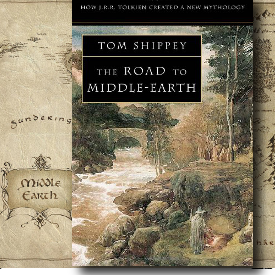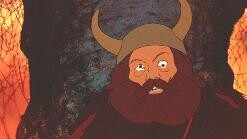So you’ve got this great idea bouncing around in your head. It’s been following you around for a while now. You’ve worked out a few details, maybe sketched a basic outline, and now it’s time to actually sit down and write a story.
Will it be a snappy short or an epic novel? I’ve often struggled with word count. I can’t always tell if a great idea is best served as a snack for the bus ride home or as a fifteen-course meal with all the trimmings.
I’ve read a few novels where the author has stretched an idea into a long, drawn-out story that seemed like it would never end, like some rambling house with additions and extra rooms jutting out at odd angles and filled with doors that lead to nowhere. I’ll usually keep reading, hoping it’ll have more substance as I go along, but all I get are long stretches of ho-hum punctuated by brief flashes of coolness. These stories probably should have stopped at twenty pages.
Then there are the short stories that I wished would continue after I came to the end. They are the ones that seem like a snippet snatched from a longer work, and have me asking “And then what happened?” “But what about…?” “Where did he go after that?”
I used to write short stories exclusively, mostly because I wanted to finish them quickly and get on with the next one. Some of those were on the long side of short and I got impatient with them because they always needed more background, more feeding, and each draft was longer than the last. One day I may revisit some of those stories and their awkward lengths.
Poetry is not my style but I once wrote a poem and was happy that it was done. And then I just couldn’t leave it alone. I kept picking at it, changing words and testing the rhymes. I rewrote it several ways but it never seemed finished until a friend put it to music.
This added a whole new dimension to the story. He’d matched the creepy mood perfectly, with reverb on a whispery voice, deep bass and sexy slide guitar.
I was relieved. It was meant to be a song, not a poem! I could finally let it go and get on with another idea. But over the next few years I’d wake up in the middle of the night to the sound of that slide guitar, and I’d scramble for my notebook because I’d had a dream about the character in the song. I had a problem. Why couldn’t he stay confined to those 130 words? The story wasn’t finished after all.
It was frustrating to have spent so much time shoehorning the poor guy into one perfect, succinct episode, only to have him busting out of the boundaries I’d set. I eventually cobbled together an outline and wrote the whole damn story. It became my first published novel.
I once asked a reader friend whether she preferred longer or shorter stories. She smiled and said she liked them all, short and long, and that size didn’t matter. I guess I walked into that one.
“It’s none of their business that you have to learn how to write.
Let them think you were born that way.”
― Ernest Hemingway











I think the fantasy genre has gotten into the epic story bug, no doubt because of Tolkein's Lord of he Rings and editors who just want a good thing to keep bringing in more money.
But some stories should remain short.
Which reminds me of Michener. Turgid and interminable. It sometimes takes awhile to realize that the writer is including a lot of backstory that the reader doesn't need to read in order to follow the story.
Truman Capote, I believe it was,once said he used the eraser more than the pencil. It a good point for all writers to consider. It's just hard, once you committed so much to paper, to then turn around and rip it apart. Post-partumphobia, I suppose.
A love a good long read but part of the problem with giant fantasy tomes is their lack of easy portability. I might as well be carrying a box of rocks in my backpack on the bus to work every day.
As for Mitchener, I've had the opposite problem where I've thought a story was finished until I handed it to someone to read. Then came all the questions, which were easy to answer since the backstory was all in my head. After too many edits, my brain fills in the blanks…
I find it easier these days to slash and rip apart a story, though it still mostly feels like I'm tearing off a hangnail. It helps if I've left it alone for a long time, as I'm less likely then to cry over every deleted word. Post-partumphobia, indeed.